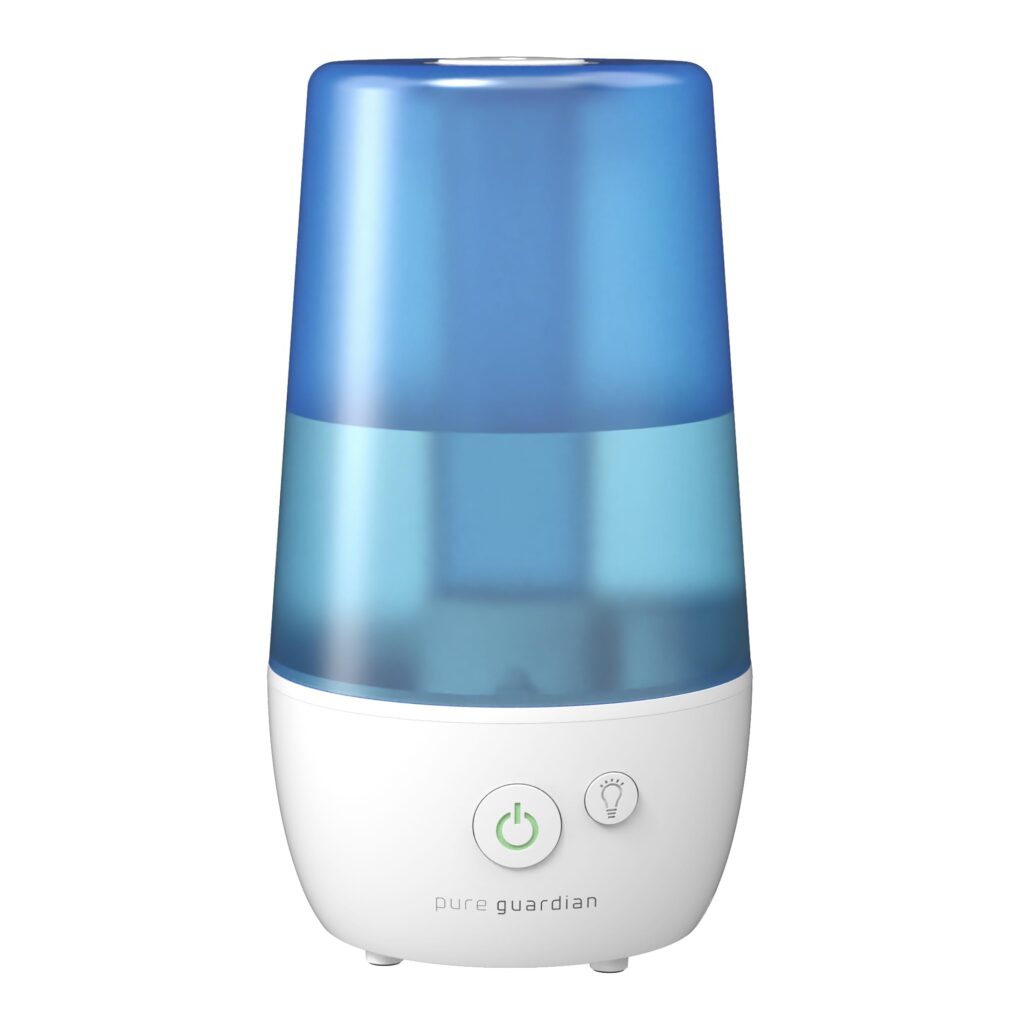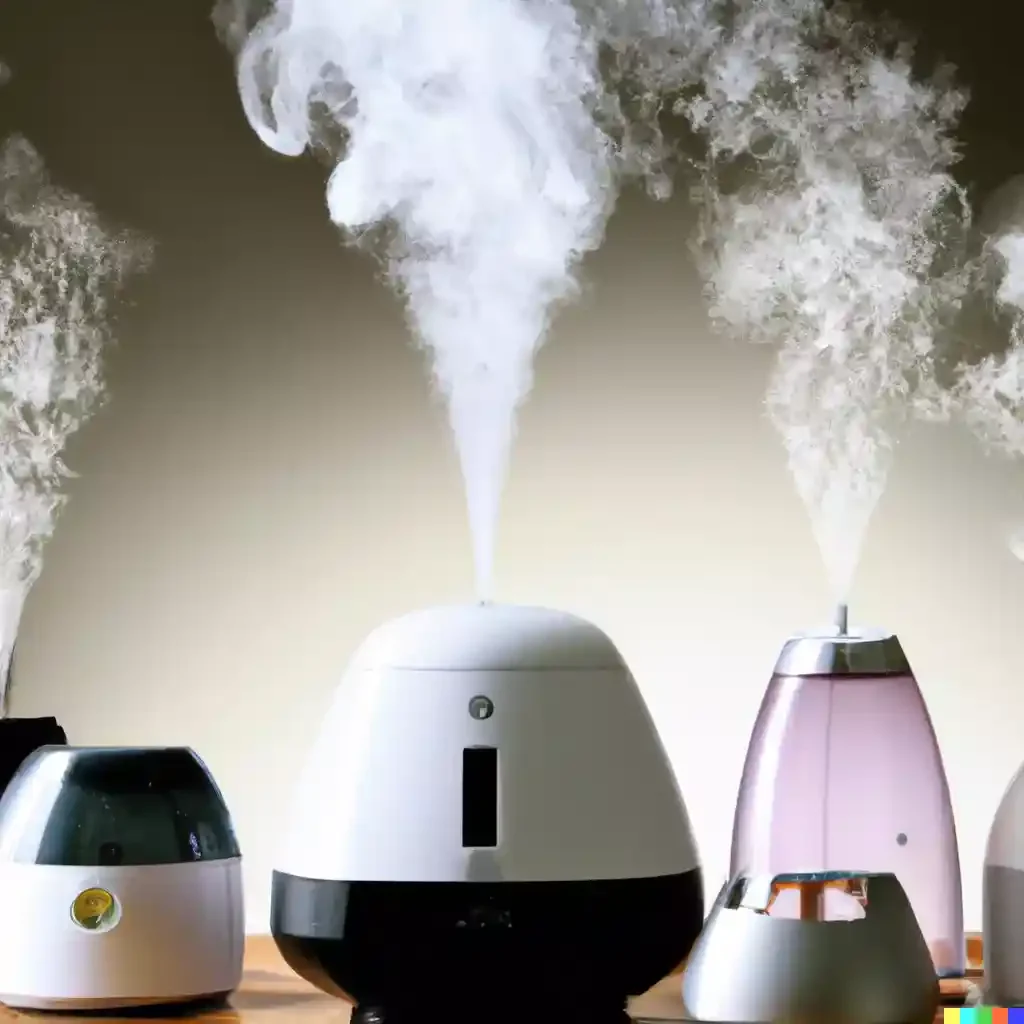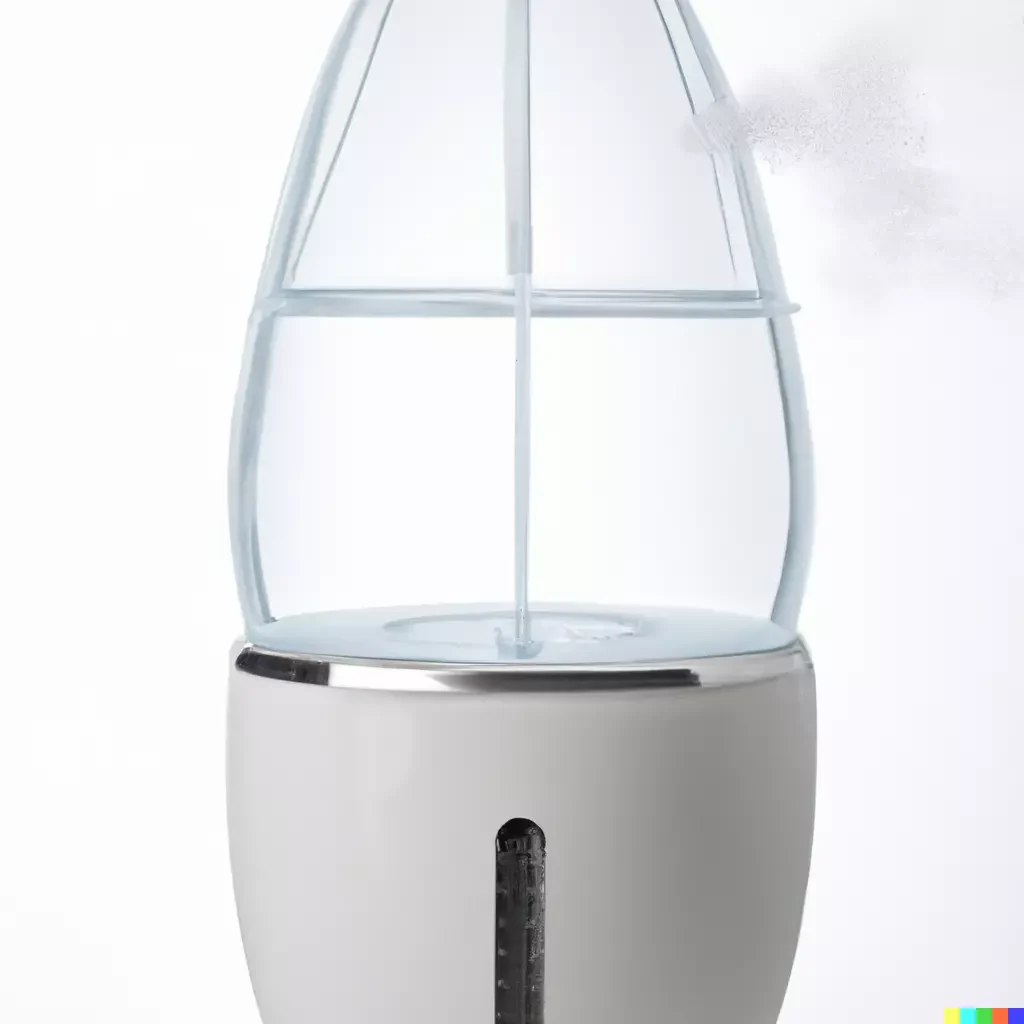Yes, you can use filtered water in a humidifier. Filtered water reduces mineral buildup and prolongs the device’s life.
Utilizing filtered water in humidifiers has become a common practice aimed at maintaining air quality and device performance. Homes and workplaces deploy humidifiers to combat dry air, which often aggravates respiratory issues and skin problems. By opting for filtered water, users sidestep the unwanted minerals and impurities present in tap water that can lead to a gunky accumulation inside the machine.
This simple step contributes to a cleaner mist output, minimizing possible health hazards associated with mineral deposits like white dust. Filtered water also assures that maintenance intervals can be extended, sparing users frequent cleaning hassles and potential repairs. Exploring such practical measures is essential for anyone seeking optimal humidifier functionality and a wholesome living environment.
:max_bytes(150000):strip_icc()/do-you-need-distilled-water-for-the-cpap-humidifier-3015017-e090e3c75143469e8b1898a809aaded2.jpg)
Credit: www.verywellhealth.com
The Pure Truth Regarding Humidifiers
Seeking to achieve optimal humidity levels with your humidifier? It’s time to immerse ourselves in The Pure Truth Regarding Humidifiers. Getting it right with this unassuming household appliance hinges on the type of water you use. But why does it matter, and what water should you choose?
Understanding The Importance Of Using The Right Water In Humidifiers
The type of water poured into your humidifier reservoir can have a dramatic effect on both the air quality produced and the device itself. Humidifiers are designed to introduce moisture into the air we breathe, but using unfiltered tap water can lead to the dissemination of minerals and potential impurities. This brings into question the integrity of the humidity emitted.
Filtered water, on the other hand, substantially reduces these impurities, protecting your respiratory health and ensuring a cleaner humidification process. But health benefits aside, the longevity of your device strongly depends on the water type too. Hard water can quickly lead to scales and deposits, clogging the system and dwindling efficiency.
Impact Of Water Quality On Humidifier Performance And Lifespan
Concerned about your humidifier’s performance and lifespan? The water quality could be the pivotal factor. When poor-quality water is used, it can cause:
- Mineral buildup within the machine
- Reduced effectiveness in easing dry air conditions
- Potential malfunctions and costly repairs
- Purer mist with fewer impurities
- Increased efficiency and more consistent output
- Extended humidifier lifespan due to fewer deposits
Therefore, filtered water doesn’t just help maintain air quality but is also a pivotal component in upkeeping your humidifier’s performance. It’s an easy yet effective way to ensure you’re maximizing your device’s potential while safeguarding your environment.
Exploring Filtered Water Benefits
When considering the best water to use in a humidifier, tapping into the benefits of filtered water is a discussion worth having. Not only does it pertain to prolonging the life of the device, but it also touches on health aspects relating to air quality. Investigating the type of water poured into a humidifier opens up the conversation about the various water types and the specific advantages of choosing filtered water. Let’s dive into the distinctions between different water sources and unpack the merits of using filtered water in your humidifier.
Differences Between Tap, Distilled, And Filtered Water
The distinctions between tap, distilled, and filtered water are paramount when selecting the appropriate type for a humidifier. Here is a brief comparison:
| Type of Water | Characteristics |
|---|---|
| Tap Water | Comes directly from municipal sources and may contain minerals, chlorine, and other impurities. |
| Distilled Water | Water that has been boiled into vapor and condensed back into liquid, removing most impurities and minerals. |
| Filtered Water | Passes through a filtration system to remove contaminants and impurities while retaining beneficial minerals. |
Advantages Of Using Filtered Water In Humidifiers
Employing filtered water in humidifiers comes with a plethora of advantages:
- Reduces Mineral Buildup: Filtered water minimizes the mineral deposits inside the humidifier, thereby extending the device’s lifespan.
- Lower Maintenance: Due to fewer deposits, maintenance becomes simpler and less frequent compared to using tap water.
- Improved Air Quality: Filtered water can lead to cleaner mist output, enhancing the air quality within your space.
- Health Benefits: Using filtered water that is free from certain chemicals and heavy metals can reduce the potential for health concerns.
Potential Risks And Downsides
While filtered water is beneficial, there are potential risks and downsides to be mindful of:
- Incomplete Filtration: Not all filters remove all types of contaminants; verify the filtration level to suit your needs.
- Regular Filter Replacement: Filters must be replaced periodically, which involves an additional maintenance cost.
- Certain Mineral Content: Filtered water may still contain some minerals that could contribute to white dust if the filtration isn’t thorough.
Ultimately, choosing filtered water for a humidifier is a balance between the device’s maintenance, air quality, and overall health considerations.
Can You Use Filtered Water In Humidifiers
Ensuring the air in your home maintains a healthy level of humidity is vital for comfort and wellbeing. One component that significantly affects this balance is the type of water used in humidifiers. Can you use filtered water in humidifiers? The use of filtered water is a topic surrounded by both endorsements and queries. This blog section delves into the suitability and effects of using filtered water in your humidifier.
Analyzing Filtered Water Properties Relevant To Humidifiers
Filtered water often holds the reputation of being the cleaner, safer option for a variety of uses due to its purification process. Understanding the properties of filtered water is essential when considering it for use in humidifiers:
- Mineral Content: Filtering water typically reduces mineral content, which can lead to less white dust and buildup in your humidifier.
- Purity Levels: Filtered water is less likely to contain impurities and bacteria that can be dispersed into the air.
- pH Levels: The pH of filtered water can vary, potentially affecting the internal components of some humidifiers.
Compatibility Of Filtered Water With Various Humidifier Types
Humidifiers come in different types, each with specific requirements for the water that can be used within them:
Creating a Table for Compatibility| Humidifier Type | Compatibility with Filtered Water |
|---|---|
| Ultrasonic Humidifiers | High compatibility due to ultrasonic waves nebulizing the water. |
| Evaporative Humidifiers | Compatible, with reduced mineral dust. |
| Steam Vaporizers | Compatibility varies with the design and brand. |
| Impeller Humidifiers | Good compatibility, as they use rotating disks to break water into fine droplets. |
Each humidifier type can benefit from filtered water, but the impact differs. Ultrasonic and Impeller humidifiers, in particular, thrive with filtered water, potentially extending the lifespan of the unit and maintaining a cleaner humidity output. Evaporative humidifiers also see a reduction in white dust, a common issue when using unfiltered tap water. With steam vaporizers, it’s important to refer to the manufacturer’s recommendation as some models are more precise with the type of water used.
Note: Always check the manufacturer’s instructions for your specific humidifier to avoid any potential damage or warranty issues. Proper maintenance and care coupled with the right type of water will ensure your humidifier functions efficiently and effectively.
Ensuring Optimal Humidifier Health
Maintaining your humidifier in top condition is key to ensuring a healthy environment in your home. One of the most important factors influencing the lifespan and performance of your humidifier is the type of water you use. Filtered water often surfaces as a preferred option for many, but understanding the specifics can make a crucial difference in the way your humidifier operates. Dive into the nuances below to get the complete picture.
Guidelines For Water Filtration Level Suitable For Humidifiers
Using filtered water in your humidifier can significantly reduce mineral deposits and the likelihood of bacteria and mold growth. However, it’s vital to note that not all filtered water is created equal. Here are key points to consider:
- Distilled Water: Often touted as the gold standard for humidifiers, distilled water undergoes a rigorous process to remove impurities and minerals.
- Reverse Osmosis: This filtration method reduces the majority of impurities, including minerals that can cause scale buildup in your device.
- Standard Carbon Filters: While these are effective in removing chlorine and odors, they might not fully eliminate minerals. It’s a decent option if higher-level filtration isn’t available.
Adhering to the manufacturer’s instructions on the water type for your specific humidifier model will always yield the best results.
Long-term Effects Of Using Filtered Water On Humidifier Maintenance
Regularly opting for filtered water can extend your humidifier’s lifespan and maintain its efficiency. Consider these insights:
| Type of Water | Impact on Humidifier |
|---|---|
| Unfiltered Tap Water | Potentially increases scaling and clogging, leading to more frequent cleanings and parts replacement. |
| Filtered Water | Minimizes mineral deposits and preserves the internal components, potentially reducing the need for repairs. |
Remember, while filtered water decreases mineral buildup, it’s not a complete substitute for regular cleaning and maintenance.
Tips For Managing Mineral Buildup And Microbial Growth
Even when using filtered water, your humidifier requires consistent care. Keep your humidifier running efficiently by:
- Regular Cleaning: Disassemble and clean your humidifier every week to prevent mineral deposits and microbial growth.
- Replace Filters: Follow the manufacturer’s guidelines to replace the humidifier’s filter regularly.
- Standing Water: Avoid allowing water to sit in the humidifier for extended periods. Empty and refill with fresh filtered water frequently.
- Antimicrobial Cartridges: Use antimicrobial cartridges if compatible with your humidifier to further prevent microbial proliferation.
Consistent upkeep not only preserves the device’s condition but ensures the air you breathe is clean and beneficial.
Navigating Water Choices For Your Humidifier
Ensuring your humidifier functions effectively involves choosing the right type of water. Tap water can contain minerals and impurities that may not only harm your device but also affect your health. Filtered water often emerges as a preferred option, but how exactly do you select the appropriate water for your humidifier? Understanding the nuances of water filtration and the associated costs can lead to an air quality transformation in your home.
How To Choose The Right Water Filtration System For Humidifiers
The task of selecting a water filtration system for your humidifier can be simplified by understanding the main contaminants present in your water. Here’s what you need to consider:
- Contaminant Removal: Ensure the system can filter out minerals and bacteria that could clog your humidifier.
- Type of Filtration: Options range from simple jug filters to whole-house systems. Choose one that suits the volume of water you’ll be using.
- Filter Lifespan: Investigate how often you’ll need to change the filter and the ease of obtaining replacements.
- Performance Standards: Look for certifications like NSF or WQA that indicate the filter meets certain performance criteria.
- Compatibility: Make sure the system’s output meshes with your humidifier’s water requirements.
Cost-benefit Analysis: Filtered Water Versus Other Options
Comparing filtered water against alternative sources, such as tap or distilled water, is crucial to understand the economics behind your choice:
| Water Source | Costs | Benefits |
|---|---|---|
| Filtered Water | Initial filter costs, ongoing maintenance | Better for humidifiers, fewer contaminants, improved air quality |
| Tap Water | Minimal | Convenient |
| Distilled Water | Cost of distillation or purchase | No minerals, ideal for sensitive humidifiers |
While filtered water offers a balanced mix of cost and purity, distilled water remains the gold standard for humidifier use, despite higher costs. Tap water is the least expensive but could lead to increased maintenance or potential health issues.
Recommendations For Achieving Pure, Humidifier-friendly Water
Adopting the following strategies can help ensure the water in your humidifier is clean and beneficial:
- Regular Maintenance: Clean and descale your humidifier frequently to prevent the build-up of minerals and bacteria.
- Water Testing: Test your tap water to better understand which filtration system is needed for your home.
- Filtration System Use: Invest in a high-quality water filtration system tailored to the needs of your humidifier.
- Opt for Bottled Distilled Water: If a filtration system isn’t viable, consider using bottled distilled water, ensuring it’s free from additives.
By taking these steps, you can maximize your humidifier’s efficiency, extend its lifespan, and provide a healthier breathing environment in your home.
Frequently Asked Questions Of Can You Use Filtered Water In Humidifier
Is Filtered Water Better For Humidifiers?
Using filtered water in a humidifier can reduce mineral buildup. This extends the device’s lifespan and enhances air quality. It’s a preferred choice for maintenance ease.
Can I Use Tap Water Instead Of Filtered Water?
Tap water may contain minerals that promote scale and bacteria growth. Filtered water is safer for your humidifier’s efficiency and cleanliness, thus it is recommended over tap water.
Does Filtered Water Reduce White Dust From Humidifiers?
Filtered water minimizes white dust, which results from minerals in tap water. White dust is less common when using demineralized or distilled water in your humidifier.
What Type Of Filtered Water Is Best For Humidifiers?
Distilled water is optimal for humidifiers as it has the least minerals. It prevents deposits and the spread of minerals into the air, making maintenance easier and improving air quality.
Conclusion
To sum up, using filtered water in your humidifier is a wise choice. It extends the device’s lifespan and improves air quality. Always follow the manufacturer’s instructions for optimal results. Embrace the benefits of filtered water to keep your humidifier performing at its best.





